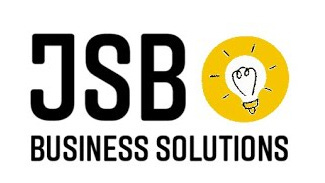How CRMs Can Grow Your Business & Make Your Business More Valuable to Investors.
But beyond just efficiency, CRMs also make your business more fundable and sale-ready—critical factors for future growth or exit strategies.
In today’s fast-paced business environment, it’s easy to get lost in the chaos of generating leads, meeting prospects, and trying to keep up with the influx of potential clients. If you're juggling multiple channels like phone calls, social media outreach, and in-person networking to generate leads, you may find it increasingly difficult to stay on top of everything. After all, there’s only so much time in a day.
What you need is a system to organize your efforts, track your leads, and help turn those leads into loyal clients who refer you to others. A well-adopted CRM (Customer Relationship Management) system does just that, enabling you to scale your sales efforts effectively. But beyond just efficiency, CRMs also make your business more fundable and sale-ready—critical factors for future growth or exit strategies.
Let’s explore how a CRM can help you, not only streamline operations but also increase the overall value of your business.
Why Business Owners Need a CRM: The Path to Growth and Scalability
A good CRM system is more than just a tool for tracking contacts—it’s a cornerstone of growth. If your business is growing and you're seeing more prospects, it’s easy for things to get lost in the shuffle. Without a system to organize your contacts, monitor follow-ups, and manage sales processes, you risk leaving opportunities on the table.
For business owners, a CRM does the following:
Organizes Data: With a CRM, you can store all relevant contact details (name, phone number, email, preferences) in one place. No more searching through spreadsheets or email inboxes to find client information.
Tracks Sales Stages: It helps you monitor where each lead is in the sales cycle. This allows for timely follow-ups and ensures that no one falls through the cracks.
Automates Communication: Whether it's follow-up emails, appointment reminders, or birthday messages, a CRM automates tasks, saving you time while nurturing your relationships.
But it doesn’t stop there. When you implement a CRM, it’s not only about working smarter, but it's also about setting your business up for greater success.
The Impact of CRM on Fundability and Business Valuation
When you’re looking to sell your business or raise capital, one of the key factors buyers or investors evaluate is how well the business can continue operating and growing after they step in. And a big part of that is understanding how the company manages its relationships with clients.
Buyers aren’t just looking to purchase a location, equipment, or staff. They're purchasing the client base—and, crucially, the systems in place to retain, grow, and engage that base. A CRM is a tangible asset in this regard because it allows you to:
Maintain Customer Retention: It’s easier to retain customers and build long-term relationships when you have an organized system to track communications, preferences, and past transactions.
Demonstrate Business Sustainability: A CRM shows potential buyers that you have a systematic approach to growing your business, which can be scaled. A business that’s too reliant on one person’s memory or effort isn’t sustainable, and that’s something investors or buyers will notice immediately.
Streamline Client Acquisition: By having a CRM, you can show potential buyers that you have an efficient system in place to attract and convert leads, increasing the future revenue potential of the business.
Create a Transferable Asset: When you're ready to sell, a CRM makes your client database and business processes easy to transfer to a new owner, which is critical for securing a high sale price.
CRM: The Key to Organizing and Engaging Your Client Base
Once you implement a CRM system, you’ll be able to categorize and track your leads more effectively. You can segment them into different classes:
Class A Prospects: These are the highly motivated prospects who are ready to buy. They have the disposable income and appreciate your approach. These are the people you want to prioritize.
Class B Prospects: These individuals may need more education or nurturing. They are interested but aren't yet ready to commit.
Class C Prospects: These clients tend to delay decisions, often costing you more time and energy than they are worth. A CRM helps you keep these people in check without wasting too many resources.
With a CRM, you can prioritize and segment your efforts. For example, rather than cold-calling 50 different people, you can focus on your Class A prospects, nurture Class B prospects, and manage Class C leads in a way that doesn’t drain your resources.
Moving from Transactional to Relational Selling
Let’s look at an example of two salon owners and how CRM adoption transforms their business practices.
Salon Owner #1: This owner sends standard text messages and occasional emails with promotions, appointment reminders, and general advertisements. While this approach is certainly better than nothing, it misses the opportunity for deeper engagement.
Salon Owner #2: This owner uses the CRM to send the same promotions but goes beyond that. They personalize the communication by sending birthday wishes, remembering client preferences (like favorite retail stores or restaurants), and occasionally offering small gifts or coupons. This client feels appreciated and recognized, not just sold to.
The second salon owner fosters a deeper relationship with clients by remembering personal details and communicating on a more meaningful level. Clients are far more likely to return, recommend, and remain loyal.
How CRMs Help Remove Call Bias
We’ve all been there—making the same calls to the same people, hoping for a different outcome. It’s easy to get comfortable and stick to what you know. However, this behavior doesn’t serve your business well in the long run. A CRM helps break the cycle by keeping you honest and tracking your outreach efforts.
Rather than relying on your memory or intuition about who to call, the CRM helps you follow up on all leads methodically. Typically, a prospect needs at least seven contacts before they convert. Without a CRM, you might give up after three or four tries, but with CRM support, you’ll stay consistent and efficient.
Picking the Right CRM for Your Business
There are countless CRM systems available, and choosing the right one can feel overwhelming. Here are some factors to consider:
Ease of Use: Make sure the system is easy to navigate and won’t require significant time to train on.
Integration: Your CRM should integrate with your existing tools like email, calendar, and social media platforms.
Customization: Look for CRMs that allow you to customize fields and data to match your business processes.
Support: Ideally, the CRM provider should offer ongoing support and training to ensure you’re maximizing the tool’s capabilities.
Conclusion: Invest in a CRM for Growth, Fundability, and Saleability
Ultimately, adopting a CRM is about creating a scalable, efficient, and sustainable system that helps you grow your business while also setting you up for future opportunities—whether it’s securing financing, selling your business, or expanding your client base.
If you’re ready to upgrade your business processes and make your company more fundable and sale-ready, a CRM is an essential tool in your toolkit. With the right CRM, you can improve client acquisition, retention, and engagement, which translates to better long-term growth, business value, and profitability.
At JSB Business Solutions, we specialize in helping business owners implement sales strategies and integrate the use of a CRM into their processes. If you’re ready to take the next step toward scaling your business, schedule a consultation with us today. Let’s work together to enhance your systems and set you up for success!
If you’re ready to grow… subscribe, schedule a meet up, or keep showing up.
As an aside, part of the reason why we launched on this platform is because we want to promote other entrepreneurs and grow givers. We’d love to hear your story.
The world around us wasn’t built by the exceptional. It was built by everyday people who were willing to do exceptional things. Let’s build taller buildings together.

Thanks for reading The Grow Givers Project! Subscribe to receive new posts and support my work. And remember, sharing is caring.




